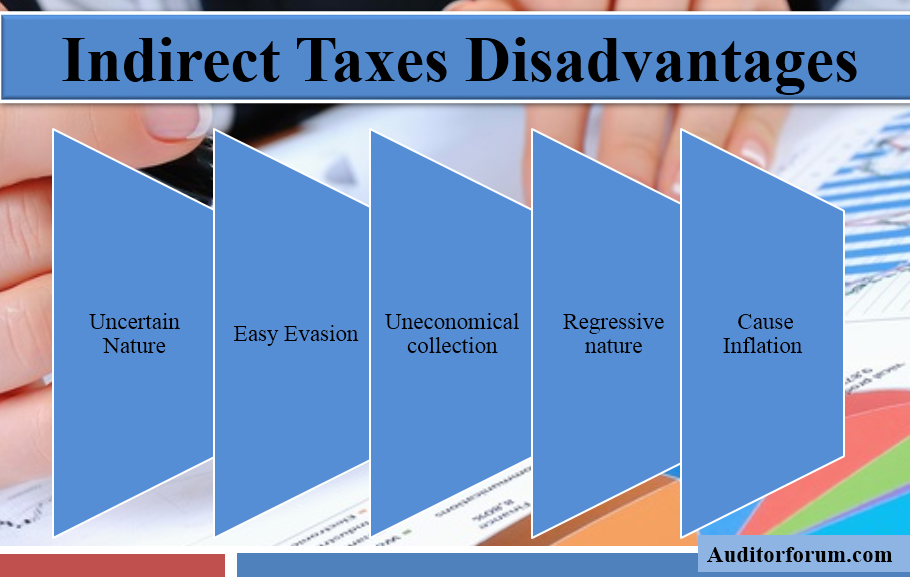What is indirect tax ?
Definition: An Indirect Tax is a tax which is collected from an intermediary/supplier who subsequently shifts the burden of the tax to the consumers as it is included in the prices of the goods/services sold. Indirect taxes are to be borne by the end consumers as burden of payment shifts towards them.
Examples of Indirect Taxes
Examples:Indirect tax is levied in the form of excise duties, customs duties and value- added taxes (Sales tax).
What are the disadvantages of Indirect Taxes?
The disadvantages of Indirect Taxes are:
- Indirect tax lead to inflationary pressures as the incidence of the taxes are passed on the consumers in the form of higher prices.
- Indirect taxes are of a regressive nature because the impact of these taxes are more severe on the poorer segments of the society than on the rich persons as a uniform rate of tax is applicable on a product/service to all sections of society.
- Indirect taxes are uncertain as it is not always possible to anticipate the repercussions of the tax imposed on a particular commodity/product.
- Indirect taxes can be evaded on a large scale by even a few collecting agents or intermediaries, resulting in substantial losses to the government.
- Indirect taxes are uneconomical to collect as several intermediaries are involved in the collection of taxes and the process involves a very large number of transactions and close monitoring of the activities.
- Indirect taxes do not promote civic consciousness among the taxpayers because the individuals do not feel the burden of the taxes as the taxes are in-built in the prices of the products purchased.
For more information and knowledge on this topic keep on visiting auditorforum.com. We are keen to know your feedback in comments.Auditor forum provides you the best practice question and answers on different topics.





